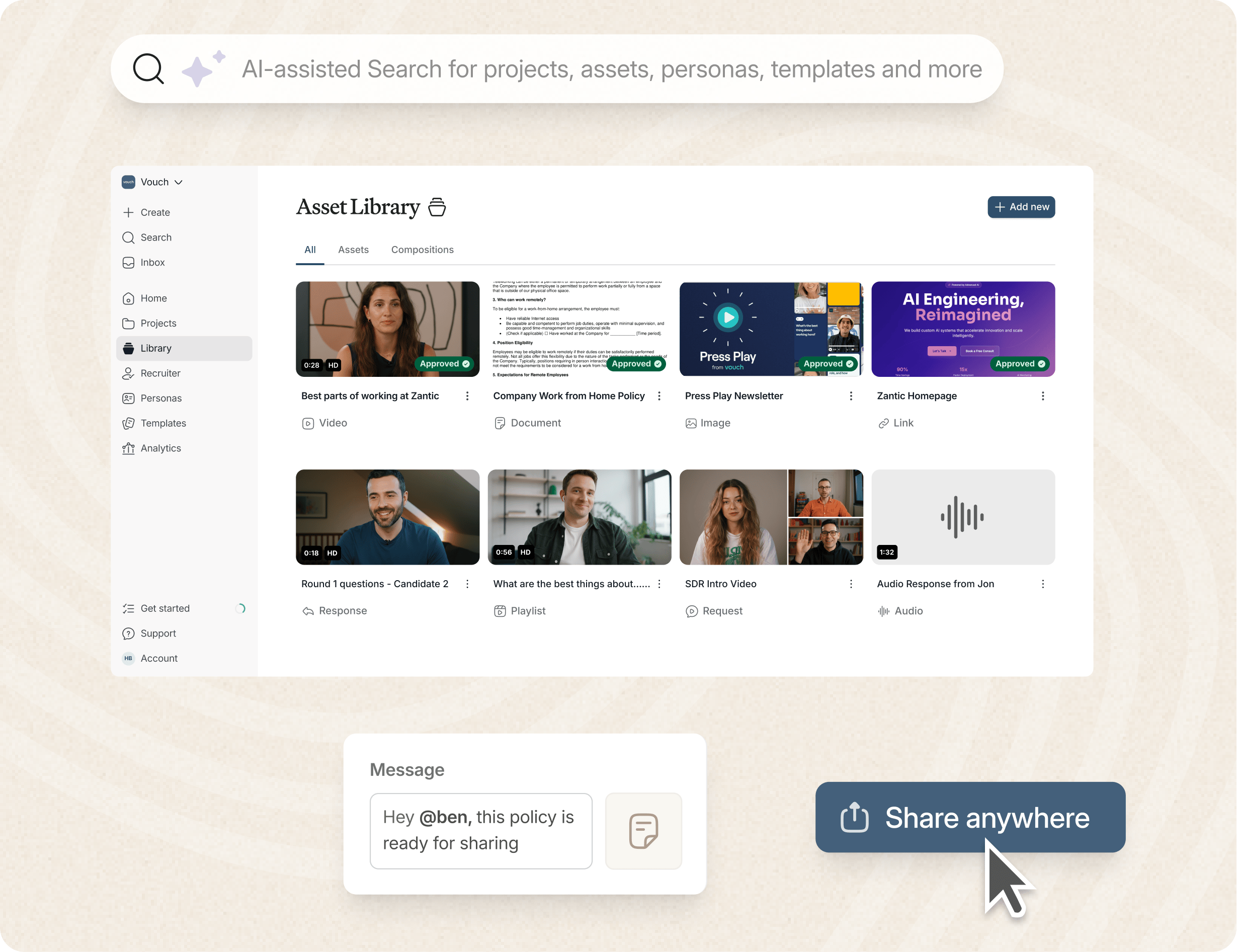Are you a business owner or hiring manager looking to attract great seasonal workers?
Seasonal employees can be a vital asset to your company, providing extra help during busy periods and ensuring smooth operations.
However, finding and hiring the right seasonal workers can be a challenge!
In this guide, we will cover the 7 vital tips for your seasonal employment hiring, and the industries that hire seasonal workers.
Let's get started.
Firstly, What is Seasonal Employment?
Seasonal employment refers to the practice of hiring employees for "shorter periods" to meet your temporary staffing needs.
These needs typically arise during peak seasons or busy periods when your business experiences a surge in demand or workload, which probably occurs across more industries than you might think!
What Industries Commonly Hire Seasonal Workers?
Seasonal work is prevalent in a lot of industries, including ski resorts, retail, hospitality, agriculture, childcare, doggy daycare, tourism, event planning, and much more.
Ski resorts, for example, heavily rely on seasonal workers to cater to the influx of customers during the winter months. This might sound simple, but consider that these workers may have a huge range of skillsets, including ski instructors, lift operators, and hospitality staff.
Retailers often hire seasonal employees to handle increased customer demand during the holiday season. Similarly, agriculture companies like fruit picking often require extra help during the spring and summer months, and so on.
No matter the industry, however, hiring seasonal workers ensures you have adequate staff to meet your customers' demands.
The AI-enabled workspace for talent teams.
- Unified workspace for talent teams
- Accelerate hiring with AI tools
- Auto-generate polished hiring and employer brand content
- Easily repurpose assets across all channel

What Are 7 Tips For Attracting Seasonal Workers?
Attracting great seasonal workers requires implementing the right steps and strategies.
Let's dive into the steps you need to attract the right seasonal workers for your company:
1) Build Your Employer Brand
Building a strong employer brand is essential for attracting and retaining top talent, which includes seasonal workers.
Your employer brand is "how" you represent your company's reputation as an employer and showcase the experience that employees can expect when working for you.
To build your employer brand, start by clearly defining your company's mission, values, and workplace culture.
If you are new to employer branding or like a refresh, be sure to check our simple EB guide here: What is Employer Brand? Discover Your Company's Personality Today
2) Offer Competitive Compensation and Incentives
To attract top talent in 2026, competitive compensation and incentives matter.
Research the average pay rates on a handy website like Glassdoor to ensure that you are offering a competitive wage.
Consider offering additional incentives, too, such as performance bonuses, employee discounts, or flexible scheduling options.
These incentives can make your seasonal positions more enticing to job seekers and increase the likelihood of attracting high-quality candidates.
3) Craft Simple Seasonal Job Descriptions
Crafting simple, inspiring job descriptions is essential for attracting seasonal positions.
Start by creating clear and concise job titles that accurately reflect the nature of the role and catch the attention of seasonal job seekers.
Without getting bogged down in details, clearly outline the position's responsibilities, qualifications, and requirements.
Break down the main responsibilities into bullet points to make the information easily scannable for job seekers. Highlight any specific skills or certifications that are necessary for the role.
Be sure to emphasize the benefits and perks of working with your company, too, and showcase your company culture at all times!
4) Leverage Social Media
Social media platforms provide an excellent opportunity for recruiters to reach seasonal job workers.
Create engaging and eye-catching posts using videos that highlight the perks associated with working for your company during the busy season.
Use relevant hashtags to increase the visibility of your posts, and encourage current employees and followers to share your posts to extend your reach even further.
Consider using paid social media ads to target specific demographics or locations, too.
If you are unsure how to do this, just ask your marketing team. These targeted ads can help you reach a far larger audience than traditional job boards alone.
5) Streamline Recruitment With One-Way Video
Streamlining your recruitment process is a big part of hiring great seasonal workers.
One-way video interviews can be an excellent tool for streamlining your initial screening process and saving time for both you and the candidates.
With one-way video interviews, candidates answer pre-recorded interview questions on their own time and submit their responses for review.
This eliminates the need for scheduling and conducting multiple phone or in-person interviews, and one-way video interviews allow you to assess candidates' communication skills, professionalism, and overall fit for the role.
One-way video interviews also provide an opportunity to compare candidates side by side, making it easier to identify the top performers.
NOTE: Loved by companies like Canva, Nike, Cisco, HubSpot, Amazon, and more, Vouch makes one-way video interviews remarkably easy.
Be sure to book a Vouch demo today and chat with a video content expert.
6) Make Onboarding A Breeze!
A smooth onboarding process is crucial for setting your seasonal employees up for success.
Like full-time workers, be sure to provide your seasonal workers with all the necessary information and resources to integrate into their roles quickly.
Create onboarding videos that outline the essential steps and paperwork required for new hires.
This will ensure that nothing is missed and that the onboarding process is consistent for all seasonal employees.
Also, consider assigning each new seasonal employee a mentor or buddy who can guide them, answer questions, and help them feel part of the team from day one.
And be sure to regularly check in with your seasonal employees during their onboarding period. You can do this in person or with tools like Vouch!
7) Retain Your Top Seasonal Talent
Great seasonal employees are highly valuable assets, so it's crucial to retain them —or at least ensure they return for your next peak season.
Offer incentives like performance bonuses and opportunities for growth and development, such as additional training or cross-training in different roles.
You might also like to convert seasonal workers to permanent staff, which allows you to retain experienced and knowledgeable employees who are already familiar with your company's operations and culture.
By offering permanent positions to seasonal workers, you can reduce the time and resources spent on recruiting and onboarding new employees.
Additionally, transitioning seasonal workers to permanent roles can improve employee morale and loyalty, as they feel valued and invested in the company's success.
What Is The Impact of Seasonal Workers on the U.S. Economy
According to the Bureau of Labor Statistics (BLS), there were approximately 2.6 million workers classified as "seasonal" in 2020.
And while exact figures vary from year to year, seasonal workers contribute Billions of dollars to the economy annually.
Moreover, seasonal employment offers job opportunities for people who may be seeking temporary or part-time work. Seasonal work allows them to gain valuable experience, earn income, and contribute to the overall workforce.
Seasonal jobs are also often a stepping stone to permanent employment, and seasonal jobs help bridge employment gaps for millions of people all around the world.
We can't underestimate the impact seasonal workers have on the U.S. economy, globally, and, most likely, businesses like yours.
What Are The Legal Considerations For Seasonal Employment In The U.S.?
By familiarizing yourself with the legalities, you can protect your business and the rights of your seasonal workers.
Labor laws and regulations govern various aspects of seasonal employment, including wage and hour requirements, workplace safety, anti-discrimination laws, and employee benefits.
Ensure that you are familiar with federal, state, and local labor laws that apply to your business and seasonal workforce. This includes understanding minimum wage rates, overtime pay regulations, meal and rest break requirements, and record-keeping obligations.
If you are unsure, consult with the U.S. Department of Labour here or seek expert legal advice.
FAQs
How Do Seasonal Jobs Work?
Seasonal jobs are temporary employment opportunities that arise during specific seasons or busy periods. Businesses hire seasonal workers to meet increased demand and provide additional support during these times. Seasonal jobs often have set start and end dates and can be found through job search platforms or by directly contacting businesses in need of seasonal staffing.
What Industries Commonly Hire Seasonal Workers?
Several industries commonly hire seasonal workers, including ski resorts, retail, hospitality, tourism, landscaping, and event planning. Ski resorts, for example, hire seasonal workers as ski instructors, lift operators, and hospitality staff. Retailers often hire seasonal workers during the holiday season to meet increased customer demand.
What are the best practices for managing seasonal workforce turnover?
To manage seasonal workforce turnover effectively, implement best practices such as creating a positive work environment, providing ongoing support and recognition, offering competitive compensation and incentives, and conducting exit interviews to gather feedback and improve future hiring processes.
What are the benefits of hiring seasonal employees?
Hiring seasonal employees offers several benefits, including extra help during busy periods, lower benefits costs, relief for full-time staff, less risk in hiring permanent employees, and the potential for finding long-term talent. Hiring seasonal employees also stimulates local economies by increasing consumer spending.
Conclusion
In conclusion, attracting great seasonal workers requires strategic planning and a welcoming approach.
Building your employer brand, crafting compelling job descriptions, and leveraging social media can help attract top seasonal talent over just traditional job boards alone.
Modern video tools like Vouch can also be vital for building your employer brand and streamlining your recruitment process.
Like to try Vouch?
Loved by companies like Canva, Nike, Cisco, HubSpot, Amazon, and more, tools like Vouch make leveraging video in your business remarkably easy.
Be sure to book a Vouch demo today and chat with a video content expert.
You might also like

Elevate Your Brand Today With Vouch
Discover how Vouch can accelerate talent acquisition while helping you stay on-brand.






